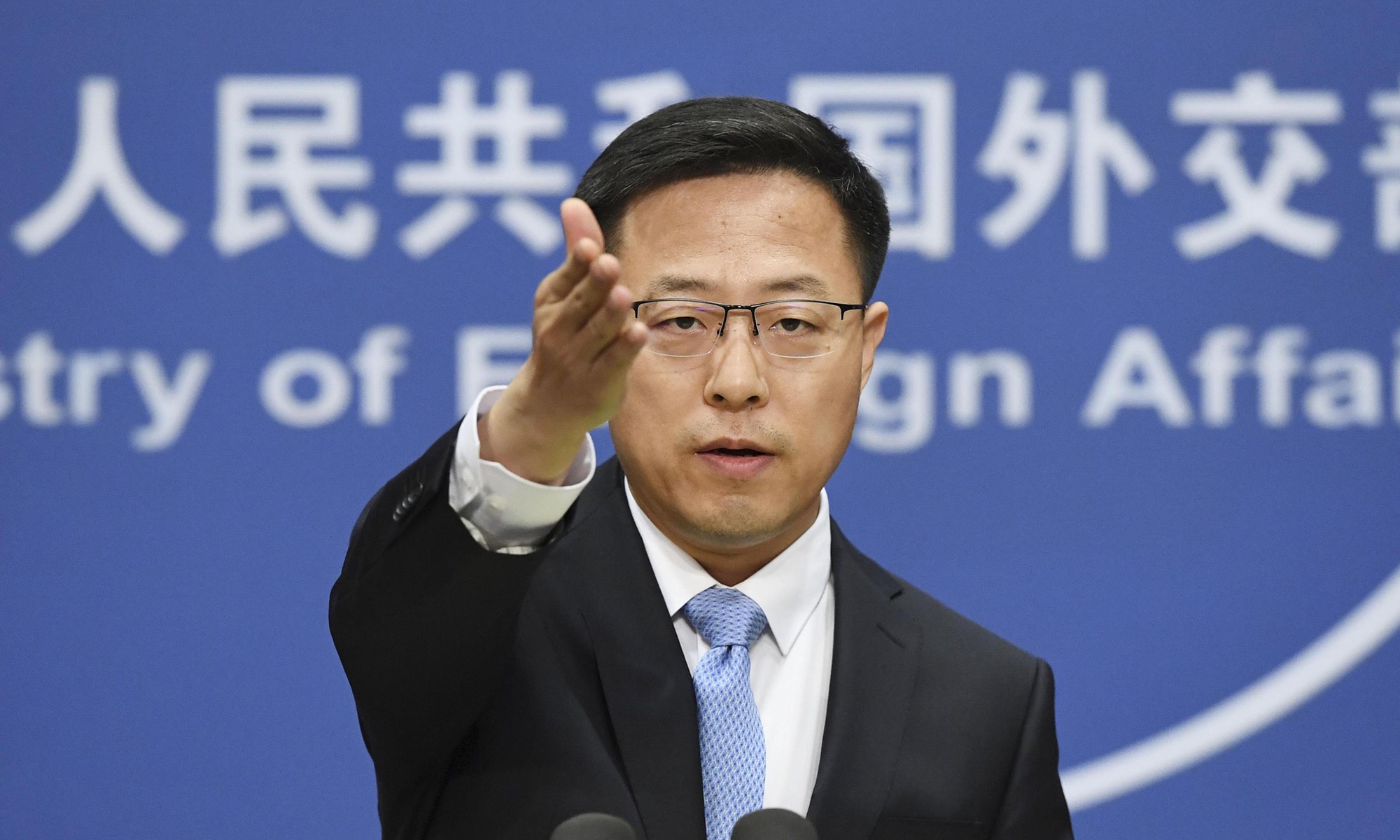
Zhao Lijian Photo: VCG
China’s Foreign Ministry slammed the US for deliberately stirring up disputes over territorial sovereignty and maritime rights in the South China Sea, following comments from US Secretary of State Antony Blinken on Sunday that an attack on the Philippines in the South China Sea would trigger a defense treaty.
The comments came in a statement marking the fifth anniversary of an arbitral tribunal ruling on the South China Sea, which rejected China's territorial claims and has been deemed invalid.
“Anyone with a discerning eye can easily see that the arbitration is a political farce which is initiated and manipulated by the US to smear and suppress China. The political agenda of the US to hype up the South China Sea issue by taking advantage of the 5th anniversary of the illegal award can't be more obvious,” said Foreign Ministry spokesperson Zhao Lijian on Monday.
The arbitral tribunal ruling was grossly erroneous in its fact-finding and application of law, it violates the United Nations Convention on the Law of the Sea (UNCLOS), and is invalid, Zhao said.
“China's sovereignty, rights and interests in the South China Sea have been formed in the long course of history. They are fully supported by abundant historical and legal basis and upheld by the Chinese government all along. Until the 1970s, no country raised any objection to China's position. The US claim that China's maritime rights and interests in the South China Sea are not based on international law runs counter to facts,” Zhao said.
The award of the arbitration is illegal, null and void. It is nothing more than a piece of waste paper. China does not accept or participate in the arbitration, nor does it accept or recognize the award, Zhao stressed.
“China's sovereignty and rights and interests in the South China Sea are not in the slightest bit affected by the ruling, and nor does China accept any claim or action based on it.”
Contrary to the US’ aggressive military actions in the South China Sea, China has always been committed to resolving the issue through friendly negotiation and consultation while exercising maximum restraint in safeguarding sovereignty and rights and interests in the region, Zhao stressed.
“Since the beginning of this year, the US has conducted close reconnaissance of China in the air and sea nearly 2,000 times, and conducted more than 20 large-scale military drills on the sea. The US also abuses bilateral military agreements with a Cold War mentality to threaten the use of force against China, exposing its power politics logic and hegemonic attitude,” Zhao said.
“The truth speaks for itself as to who is engaging in coercion and intimidation in the South China Sea and who is threatening the freedom and safety of navigation,” he added.
The US often pretends to be a "defender of international law," so we ask the US to accede to the UNCLOS, Zhao said.
“The US applies international law and rules where it chooses and rejects them when they are not convenient. This pragmatism, self-interest and double standards have long since been exposed to the world,” Zhao said.
About 30 percent of global trade in goods passes through the South China Sea, and about 100,000 merchant ships pass through the South China Sea every year.
“Thanks to the concerted efforts of China and other countries in the region, the South China Sea has been unimpeded and safe for some time. I have not heard of any vessels being blocked or having their safety threatened in the South China Sea,” Zhao said, noting the sea is the common home of countries in the region and should not become a “hunting ground” for the US to pursue its own geopolitical interests.
We urge the US to stop abusing international law, stop making provocations in the South China Sea, respect China's sovereign rights and interests in the region and not go further down the wrong path, Zhao said.
China will continue to firmly uphold its sovereignty and security in accordance with the law, its friendly relations and cooperation with countries in the region, and peace and stability in the South China Sea, Zhao said.
Global Times




